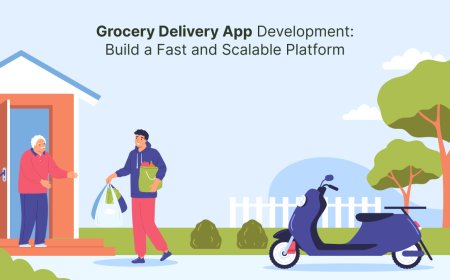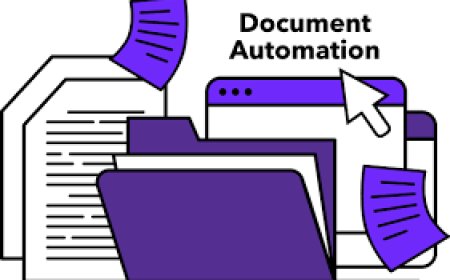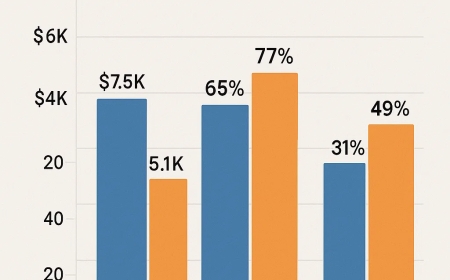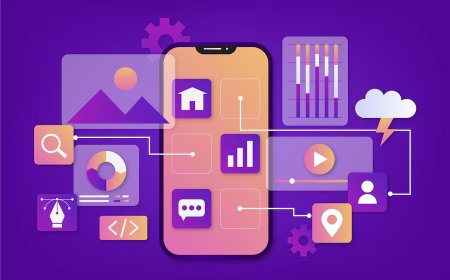Why Mobile DevOps Is Key for App Quality and Speed
Improve mobile app quality and delivery speed with Mobile DevOps. Learn key tactics, tools, and business insights.
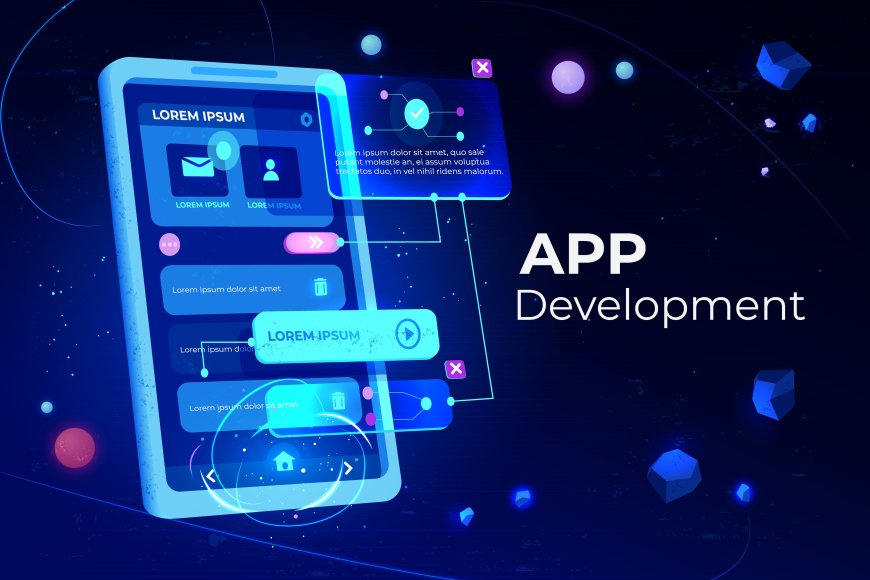
Weve reached a turning point in mobile app development. Speed alone doesnt cut it anymore. Neither does it just have a feature-rich app. What matters now is how fast you can deliver high-quality experiencesconsistently and confidently.
Thats where Mobile DevOps comes in.
Think of it as the behind-the-scenes framework that lets top teams build, test, release, and monitor mobile apps with precision. In a space where delays can lose users and bugs can damage your brand; Mobile DevOps empowers you to move quickly and deliver flawlessly.
In this blog, well explore why Mobile DevOps is essential, how it differs from traditional approaches, and what you need to implement it effectively in your own projects.
What Is Mobile DevOps? (And Why It's Not Just Traditional DevOps Repackaged)
Mobile DevOps refers to a tailored approach that combines development and IT operations with a specific focus on the needs and nuances of mobile platforms. Traditional DevOps practices are typically rooted in web or server-side development, but Mobile DevOps comes with its own set of distinct hurdles:
-
App Store release protocols
-
Diverse hardware and screen sizes
-
OS-specific dependencies
-
Rapid update cycles and bug fixes
Its more than just integrating and deploying codeit also includes testing across mobile environments, ensuring security on various platforms, and managing user-facing releases effectively.
Why DevOps Is No Longer Optional for Mobile App Development?
Accelerates Time-to-Market
In the fast-paced mobile market, the ability to release quickly often separates leaders from laggards. DevOps automates repetitive tasks like builds, tests, and deployments, shrinking delivery cycles from days to hours. This leads to faster innovation, real-time feedback, and fewer delays.
"If youre still releasing apps on a quarterly basis, youre already falling behind. Our goal is to deploy updates weekly, sometimes daily." CTO, Global Retail Tech Brand.
Enhances Code Integrity Through Ongoing Testing
With DevOps, continuous testing becomes an embedded part of the pipeline. Testing happens at every stage and across various devices, catching errors early and improving each iteration of code.
Key Benefits:
-
Fewer post-launch crashes
-
Smoother user interactions
-
Higher app confidence and retention
Promotes Unified Teamwork
A Mobile DevOps framework encourages developers, testers, and operations teams to operate on a shared system, using unified dashboards and communication tools. Everyone contributes to quality and speed collaboratively.
Softura Insight: At Softura, we make it a practice to bring QA and operations into the development lifecycle early. By embedding QA and ops from the beginning, we reduce ambiguity and foster tight-knit collaboration across teams.
Delivers Reliable and Predictable Deployments
Have you experienced the frustration of an app working in testing but failing to live? With DevOps automation and standardized environments, what works in staging works in productionevery time.
Unique Challenges in Mobile DevOps
Unlike DevOps for backend or web systems, Mobile DevOps requires custom solutions:
Device Diversity: Testing must span a wide array of screen sizes, chipsets, and OS versions.
Frequent OS Updates: A new Android or iOS release can disrupt compatibility.
Approval Pipelines: Submitting to app stores introduces added complexity and potential delays.
Recommended Tactic: Build comprehensive mobile CI/CD workflows with tools like Bitrise, CircleCI, and Firebase Test Lab. Feature flagging allows for flexible rollouts and reduces risk.
Tools Powering Mobile DevOps
Continuous Integration Tools: Jenkins, Bitrise, CircleCI
Testing Frameworks: Appium, Espresso, XCUITest
Monitoring: Firebase Crashlytics, AppDynamics, New Relic
Deployment: Fastlane, Microsoft App Center, CodePush
These tools enable developers to streamline tasks, detect issues proactively, and deploy with confidence.
Case Study: Softuras Mobile DevOps Transformation
A major logistics enterprise partnered with us to fix lagging release timelines and frequent app failures. Our team introduced an end-to-end Mobile DevOps model, incorporating automation, cloud-based testing labs, and real-time monitoring.
Impact:
-
Cut down release cycles from nearly three weeks to just three days
-
Reduced crash frequency by more than half
-
Improved app store ratings significantlyfrom 3.2 to 4.5based on enhanced performance and reliability
This highlights the tangible impact of a well-implemented Mobile DevOps approach.
Key Metrics That Define DevOps Maturity in Mobile
-
Integration frequency: How regularly is code merged?
-
Test automation rate: Proportion of code evaluated through automated testing
-
Release cadence: How consistently new updates are rolled out to mobile users
-
Issue resolution time (MTTR): How fast can you resolve production problems?
-
User Ratings: Reflections of reliability and user satisfaction
Tracking these indicators will give you a solid understanding of your teams DevOps performance.
Mobile DevOps Best Practices
-
Automate Everything: From testing to release, minimize manual work
-
Test Early, Test Often: Shift-left testing to catch bugs early
-
Use Real Devices: Emulators can only go so far
-
Feature Flags: Release features to users gradually
-
Monitor Proactively: Crash logs and performance metrics
-
Enable Rollbacks: In case things go sideways
-
Secure Code: Automate security scans in CI
C-Level Perspective: Viewing DevOps Through a Strategic Lens
Executives sometimes underestimate DevOps as just an engineering framework. In truth, Mobile DevOps is a powerful enabler of faster pivots, stronger customer engagement, and sustained growth.
"Adopting Mobile DevOps isnt merely an engineering choice; its a forward-thinking business decision. It empowers you to react faster, innovate quicker, and stay relevant." CIO, Healthcare SaaS Leader.
The agility DevOps provides helps businesses seize market opportunities, boost app retention, and stay ahead of disruption.
Why Softura Integrates DevOps in Every Mobile Project
Mobile DevOps is not a side practice at Softuraits at the heart of how we build. We prioritize:
-
Speed-to-Launch: Delivering MVPs at startup speed
-
Built-in Scalability: Architecting for future-proof growth
-
Stability: Ensuring consistent user experiences at scale
We dont treat DevOps as a checklist. We treat it as an operational mindset. And that mindset is what sets our mobile app development apart.
Conclusion: Quality + Speed = DevOps
Todays mobile users expect apps to be lightning-fast and fail-proof. Anything less, and they move on.
Mobile DevOps is the linchpin that connects the need for rapid delivery with the demand for dependable performance.
If your goal is to deliver apps that perform flawlessly and evolve quickly, its time to embrace Mobile DevOps.
Connect with Softura to explore how our DevOps approach can propel your mobile initiatives forward.








&srotate=0)








